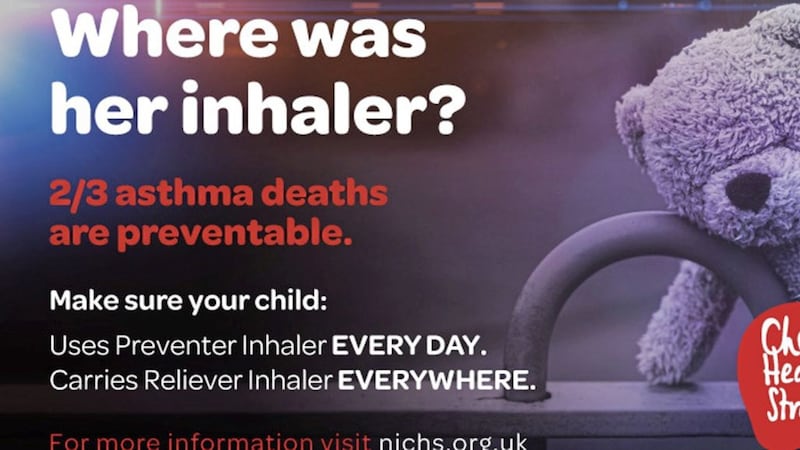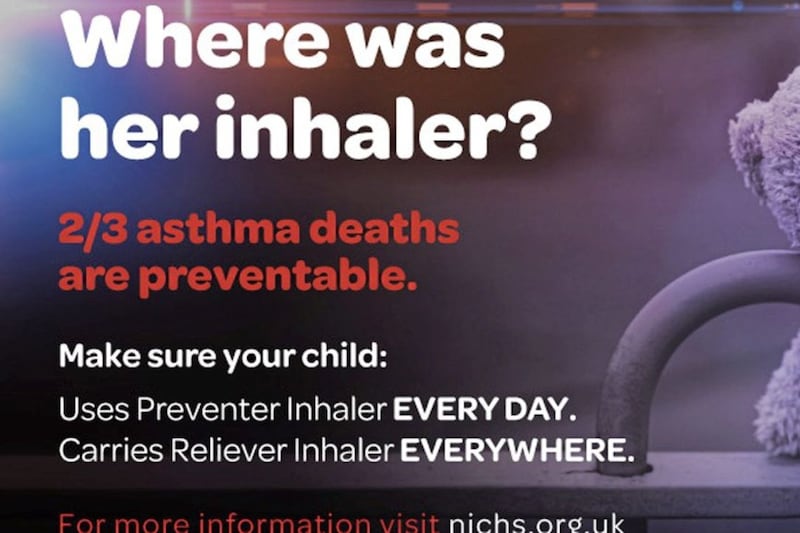TWO out of three asthma deaths are preventable, a leading health charity has warned.
With around one in 10 people in the north asthmatic, including 36,000 children, a campaign has been launched to raise awareness of the condition, how dangerous it can be and the importance of the correct use of inhalers.
The Northern Ireland Chest Heart and Stroke (NICHS) said it is concerned the public does not realise how serious asthma is, with the most recent figures revealing that 38 people in the north died from the condition in 2017.
Fidelma Carter from the charity said "the fact two out of three asthma deaths are preventable is unacceptable".
"Through our new asthma awareness campaign, we want to help prevent future asthma deaths, make people think twice about asthma, as well as take their inhalers properly.
"This means taking their preventer inhaler daily and ensuring they carry their reliever inhaler with them at all times.”
"Alarmingly, only 30 per cent of asthma patients know how to use their inhaler properly. Furthermore, only 15 per cent of health care professionals are educated on correct inhaler use which means they are not passing on the right techniques to patients.
"This situation needs to change as the blunt fact is asthma can be fatal and it is vital everyone with asthma is empowered and educated with the knowledge and skills on how to use inhalers correctly to help prevent unnecessary attacks and deaths."
The charity has launched a campaign in conjunction with Asthma Partnership Group, particularly targetting children and young people, after research revealed death rates for asthma in 10 to 24-year-olds is highest in UK, compared with other European nations.
"We know some people are not taking their brown preventer inhaler everyday, which is crucial as this builds up protection in the airways over time to help prevent asthma attacks," said Ms Carter.
"We also know people are not carrying their blue reliever inhaler with them which means if they have an attack they are without the lifeline they need. Others think they do not have asthma anymore and mistakenly stop their treatment without consulting their healthcare professional.
"These are all behaviours which we want to try and change through our asthma awareness campaign."
An advertising campaign, webinar and range of educational materials has been unveiled to spread awareness of asthma and how serious it can be.
"We want to empower children with asthma and give them the tools to do the things they enjoy whilst understanding their condition and the importance of using their inhalers properly," added Ms Carter.
Professor Mike Shields, a retired consultant respiratory paediatrician, said children and young people with asthma should be shown how to use their inhalers correctly, checked that they can do this and should have an asthma personal action plan.
"NI Chest Heart and Stroke’s asthma awareness campaign will hopefully make people think twice about this condition and its potentially deadly impact."








